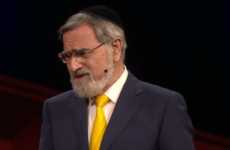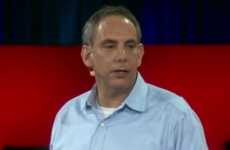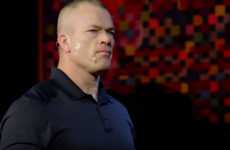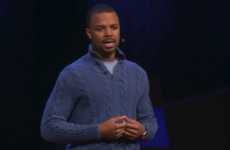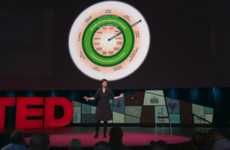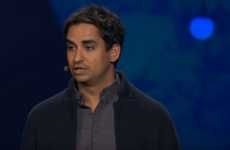
Need Inspiration?
Get inspired by 4,000+ keynote speaker videos & our founder, a top keynote speaker on innovation.
Common Ground is the Epicenter of Charles C. Mann's Keynote on the Future
Kalin Ned — October 30, 2018 — Keynote Trends
References: charlesmann.org & ted
Charles C. Mann is a science journalist and his keynote on the future depicts the possibly dire outcome for humanity as the population rises to 10 billion. The speaker is concerned about sustaining human life, in terms of resources and natural capacity. His talk offers the audience a concise look at two approaches to addressing these issues that are, he argues, only contradictory on the surface.
The keynote on the future begins with the definition of an 'outbreak.' In biology, this terms is used to signify when a species exceeds the bounds of natural selection, ultimately challenging the capacity of the entire ecosystem. The unfortunate reality is that "outbreaks in nature don't end well." Although we, as humans, perceive ourselves as different, Charles C. Mann argues that in this context — we really aren't. The science journalist brings up relevant questions that are in support of this — "How are we going to feed everybody, get water to everybody, provide power to everybody, avoid the worst impacts of climate change?"
The talk on the future branches off to define two distinct approaches in answering these questions. The speaker names the individuals in these two 'camps' the "wizards" and the "prophets." The former believe in a smarter, connected world — one that utilizes technology to reach the ideal of "a dematerialized capitalist society" with budding, "hyperefficient megacities." The latter advocates for "smaller, interconnected communities" that celebrate the earth, respect its limits and scale back to accommodate the needs of the species. While wizards advocate for innovation and exponential progression, prophets favor preservation, conservation and the endless recycling of resources.
Tensions have been high between these two groups due to their different visions of what 2050 looks like. However, with his keynote on the future, Charles C. Mann hopes to instill the idea that instead of fighting and protesting each other, wizards and prophets should join forces, for they are, when it boils down to it, on the same side. By accepting each other's most fundamental premises, wizards and prophets can reach a consensus, from where they can start to adequately address the issues we face as a species in the next 30 years.
The keynote on the future begins with the definition of an 'outbreak.' In biology, this terms is used to signify when a species exceeds the bounds of natural selection, ultimately challenging the capacity of the entire ecosystem. The unfortunate reality is that "outbreaks in nature don't end well." Although we, as humans, perceive ourselves as different, Charles C. Mann argues that in this context — we really aren't. The science journalist brings up relevant questions that are in support of this — "How are we going to feed everybody, get water to everybody, provide power to everybody, avoid the worst impacts of climate change?"
The talk on the future branches off to define two distinct approaches in answering these questions. The speaker names the individuals in these two 'camps' the "wizards" and the "prophets." The former believe in a smarter, connected world — one that utilizes technology to reach the ideal of "a dematerialized capitalist society" with budding, "hyperefficient megacities." The latter advocates for "smaller, interconnected communities" that celebrate the earth, respect its limits and scale back to accommodate the needs of the species. While wizards advocate for innovation and exponential progression, prophets favor preservation, conservation and the endless recycling of resources.
Tensions have been high between these two groups due to their different visions of what 2050 looks like. However, with his keynote on the future, Charles C. Mann hopes to instill the idea that instead of fighting and protesting each other, wizards and prophets should join forces, for they are, when it boils down to it, on the same side. By accepting each other's most fundamental premises, wizards and prophets can reach a consensus, from where they can start to adequately address the issues we face as a species in the next 30 years.
2.4
Score
Popularity
Activity
Freshness



